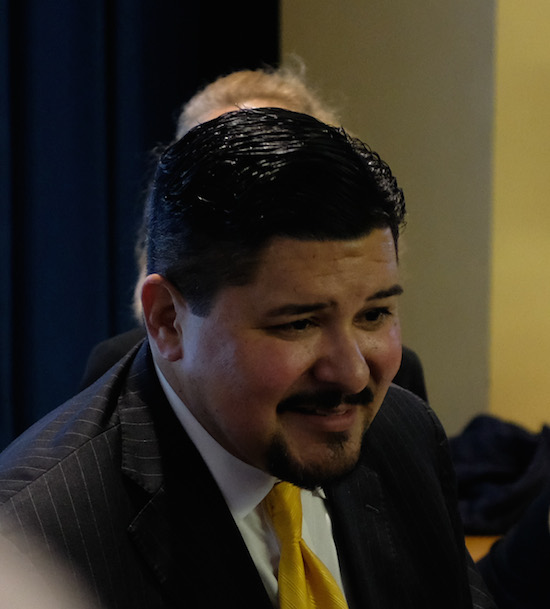
Chancellor Richard Carranza at the UWS town hall meeting.
By Michael McDowell
Parents, students, educators, staff, and politicians packed the auditorium at PS 163 on 97th Street Wednesday night, where New York City Schools Chancellor Richard Carranza answered questions about funding for bilingual and dual language education, the middle school admissions process, innovation and integration.
The event was hosted by the District 3 Community Education Council. CEC3 President Kim Watkins introduced Chancellor Carranza, who briefly outlined four broad areas of focus for the year ahead: accelerating learning and teaching; engaging and empowering communities; helping our people; and ensuring equity. Carranza has been outspoken about the lack of diversity at schools on the Upper West Side and elsewhere.
To start off the Q&A session, a parent asked what can be done to increase parental involvement in Harlem: Do you think parental involvement is essential to improving school standards in Harlem?
“Parental involvement is important…but what is even more important is parental empowerment. How do you advocate on behalf of your children? How do you access the DOE?” Carranza said. “Part of our approach is that we no longer wait for people to come to us, we’re going to where people are.”
Parental involvement was not an issue at PS 87, which was well represented at the town hall by supporters of bilingual and dual language education, many of whom wielded homemade signs and posters. The school’s dual language program was at risk of being dismantled, due to budget cuts.
“For those that are in PS 87, I just want to answer the elephant question in the room: your dual language program is not going away,” Carranza said, to cheers and sustained applause.
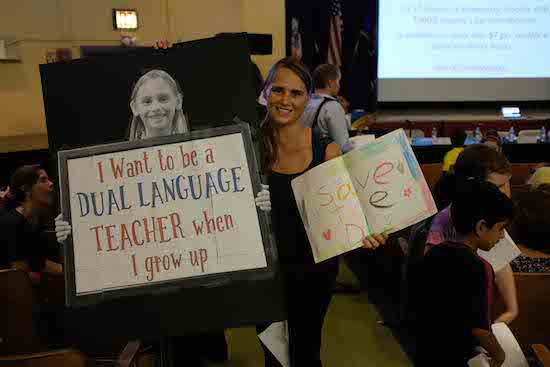
Brooke Santamaria, a PS 87 parent, advocated for dual language programs at the meeting.
“This year we opened more than forty additional dual language programs…we are consistently looking at how we increase our portfolio of dual language programs.”
Equity in access to education was addressed directly in a question from the CEC3. A controversial plan to integrate District 3 schools was approved in June. The plan will give admissions priority for a set number of seats at middle schools to disadvantaged students who score poorly on tests.
What financial resources can District 3 schools expect to support the process?
“I am working very closely with your executive superintendent…we are going back and looking at what you’ve asked for in District 3…we know that there may be some instructional supports, there may be some social and mobile learning supports, and we’re looking at exactly what that looks like so that we can actually bring some resources to District 3.”
Carranza continued.
“We need to be very careful in terms of the enlightened conversations that we’ve had around diversity and integration, and why that’s important to us in the city. We all need to be careful in terms of how we talk about the work, so that it doesn’t become ‘We need money to implement diversity, because kids that are diverse cost us more money because they need more things.’ I know that’s not what you’re saying…but there are segments of our community that aren’t as enlightened in terms of the conversations we’ve had that would absolutely use that as a reason that we shouldn’t pursue an equity agenda in terms of integration.”
Another questioner asked what educational innovations Carranza thinks could help students in a rapidly changing, high-tech society. And how the schools can partner integration with innovation?
“Technology, from my perspective, will never replace a well-trained, caring teacher in the classroom…We have computer science for all in our school system. We are increasing the number of STEAM programs in our school system—you’re probably thinking, he means STEM. Well, STEM is Science, Technology, Engineering, and Math. I don’t believe it should be, because we have the A, it should be Arts. Science, Technology, Engineering, Arts, and Math.”
Carranza also approached innovation in terms of what the ideal profile of the graduate of the New York City Department of Education should look like.
“I have some ideas: [graduates] should be able to read and write with great aplomb, they should also have a digital identity…students should have a skill set that makes them work in teams, that enables them to be lifelong learners…when we have that program defined, we can bring people to the table that can help us do that.”
Carranza mentioned a partnership he brokered with the company Salesforce in San Francisco, where he was previously superintendent.
The questions continued. One person asked if District 2, which includes the Upper East Side and other neighborhoods, will continue to give locals priority to go to high school there, a program that does not exist in District 3.
“I have a hard time believing that New Yorkers…would cling to a system that says we’re going to put in barriers for students in District 3 to go to schools in District 2 just because we’re afraid that some of our neighbors are going to not want to be in schools because they’re child might go to school with a black or a brown child. I have a really hard time believing that. So we’re looking at this. Now, is it going to happen right now? I’m not going to say right now. But maybe later.”
Another asked: How can the DOE help all schools when our community schools are struggling for their very right to survive in an area where charter schools have spread?
“We have to take care of our own house first…we’re getting outhustled in our community, so that’s going to change. When we talk about equity, it’s not just equity of resources, its equity of facilities, its equity of structures, equity of systems, equity so that the community can be able to have a fighting chance.”
Carranza continued.
“It is absolutely because of this City Council and this mayor in New York City that our schools have seen any increase, any modicum of increase in the base funding [per student]…We’re owed billions of dollars, our kids are owed billions of dollars, and I don’t have to run for election so I can give it to you straight. Where’s our money? We’re owed money, my friends, and we’re going to make sure we hold our state government accountable for that money.”
Can the DOE commit to installing elevators in all public schools over the next four years?
“Honestly speaking, we can’t commit [to installing elevators] in every one of the 1800 schools that we have in four years…but there should be absolutely no reason that a student with disabilities, physical disabilities, should be precluded from attending any school because the school doesn’t have the facility to provide access to that student…Equity is also equity of access, so we are absolutely looking at how we make our buildings accessible to students with disabilities…I’m very concerned about the number of schools that we have that are not accessible…it is an area of priority for us as it pertains to the capital plan.”
Would you support having schools that have the capacity to fundraise put 20 percent of what they raise in a general fund that would be redistributed to schools that did not have the ability to raise as much money?
“Yes…I’m not saying I’m going to create it, manage it, mandate it, what I’m saying is, I’m supportive of that…I know that there is a bill in city council that’s proposing to create some sort of that kind of an idea, and I think if we can get the buy-in to make that happen…look, if the NFL can share profits, I don’t see why PTAs can’t.”
Research shows that race matters in the classroom, another person said: 90 percent of the teachers are white, and the majority of our children are non-white. Who is going to teach the stories of all children through their voices?
“There’s a number of initiatives that we have in the DOE, one of them I can highlight is Black Men Teach, so we’ve actually actively recruited male black teachers…We have a number of teacher academies where high school students have decided they want to be teachers…we’re going to increase those kinds of pathways…There is also work that we are doing with the DOE. Part of it is called implicit bias training, the other is culturally relevant pedagogy, culturally relevant curriculum, where we are taking who we have in classrooms and helping them to develop that better lens. Now, it’s not like everybody needs the help: there are some incredible teachers I have seen who are not teachers of color who are doing incredible work.”
Carranza promised to release an FAQ after the event, with answers to questions he did not have the capacity to answer in person, given time constraints.
District 3 is made up of more than 40 schools serving nearly 23,000 students, from pre-kindergarten through twelfth grade, Columbus Circle to the Hudson River, up to 122nd Street and Fifth Avenue.
Also in attendance were City Council members Helen Rosenthal and Mark Levine, as well as State Assembly Member Linda Rosenthal.



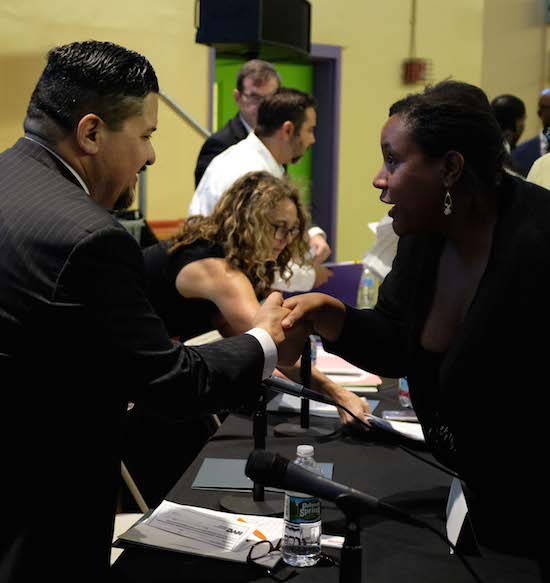
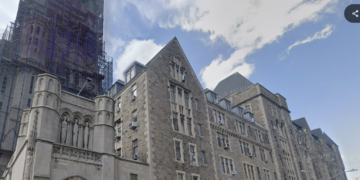



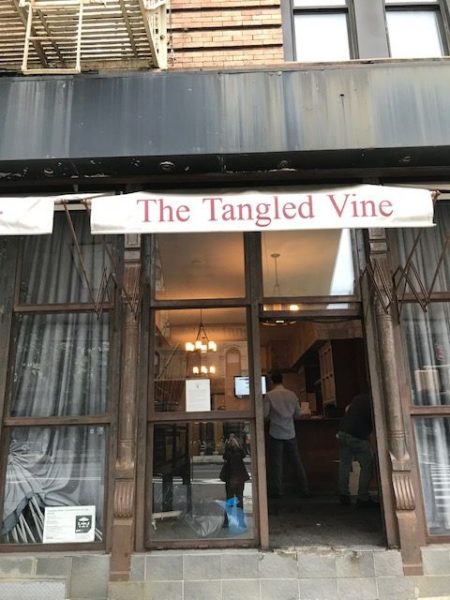
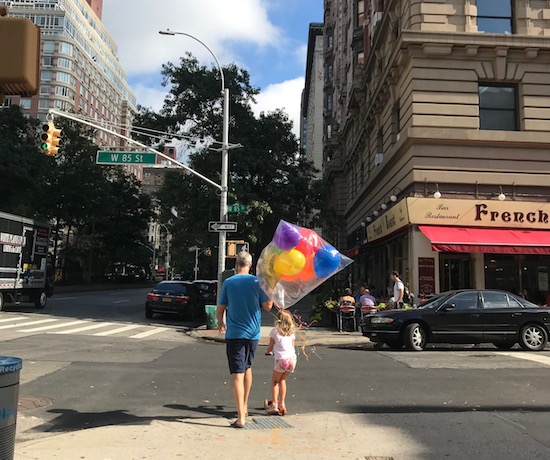
Carranza is obsessed with “diversity” and “equity” and alleged cultural biases in NYC’s education system.
Despite all his bureaucratic babbling the end result of his schemes will inevitably be lowered educational standards and decreased academic performance – not to mention middle class flight to private schools and the suburbs.
NYC has a handful of good elementary, middle and high schools left. Their success is due to engaged parents, hard working students and teachers who aren’t distracted by students who are poor performers and disciplinary problems.
Instead of holding up these schools as models to emulate Carranza is intent on destroying them.
Keep in mind that this is a man who notoriously cancelled AP Calculus in San Francisco because he wasn’t happy with the demographic makeup of the students who took this class.
You don’t strengthen the weak by weakening the strong.
Sherman, why do you support segregated schools?
Do you also support segregated housing?
Hi dannyboy
You boasted that you sent your own kid to a segregated school and you justify it as saying you simply wanted the best education for her.
Look in the mirror before you lash out at anyone else.
Sherm
Yes, I always wanted my children to receive the best education for them.
AND I NEVER SUPPORTED SEGREGATION.
I will not join you in the shameful segregation of the schools.
LK,
Please stop sending all of your questions about UWS School Segregation. I suggest that you research on your own.
Or, is it that you just don’t want to know about the School Segregation because you support it?
(See how easy it is to ask just one question, rather that ask 8 just to make your point about the benefits of School Segregation).
So, Dannyboy, what was your criteria for the school that gives the best education to your children? I’m not sure what Sherman is talking about – did you happen to send your kids to an academically-screened school? If so, do you think this was the right decision? If so, why do you think Sherman can’t send his children to a similar school? Why do you think that replacing academic screens with racial or social-economic screens will be better? Don’t you think it would be better to invest into elementary schools in the areas that produce underachieving students instead of taking fair academic screens ( such as state test results and school grades ) away? Don’t you see that politicians are taking you for a fool by saying we are going to de-segregate the schools, and then saying that I have 25% of “my”kids in good schools instead of saying that I got my community to excel in elementary school and now they can choose the school they want? If you read history, maybe you can recall cultural revolution in China when reading about Brooklyn arts school not able to audition due to latest diversity plan?
No law or policy can make kids smarter or work harder.
Cardozza is attempting to reverse the shameful segregation of the District 3 schools. He is NOT writing laws or introducing policies to “make kids smarter or work harder”.
Which specific New York school policy currently mandates segregation in district 3. In what year was this policy implemented?
The most relevant dictionary definition of segregation is: The enforced separation of different racial groups in a country, community, or establishment.
Pretty sure the NY schools never had an “enforced separation”.
How can you undo something that was never done?
Bruce
The definition of segregation is that it is enforced. If D-boy meant something else he should have said something else. I’m not playing with words, I’m trying to get people to remember that they have specific meanings and that word salad undermines your argument no matter what it is.
When you call schools segregated it means something specific. If your only purpose in using that word is to make a situation seem more urgent or nefarious than it actually is then you are doing more than spinning agit-prop lies.
Mr. Carranza seems to specialize in using loaded language to put people on the defensive, implying that if you disagree with his policies you are racist, classist etc. As a technique of rhetoric it can be unsettling unless seen for what it is, simply emotional manipulation that distracts from the reality of the situation.
Ted said:
“The most relevant dictionary definition of segregation is: The enforced separation of different racial groups in a country, community, or establishment.
Pretty sure the NY schools never had an “enforced separation”.”
Ted, you’re playing with words. Dannyboy never said we have “enforced segregation.” But we do have racial segregation, among the most severe in the country.
A lot of work has been done to describe and understand this. The reasons are complex and include housing patterns, Bloomberg’s extreme “school choice” policy, increased economic inequality, and other reasons.
We won’t get anywhere if people don’t acknowledge that we now have racially segregated schools in NYC, and this results in educational disparities.
there are many reports on the racial segregation of the schools. here’s a good one to start with:
https://civilrightsproject.ucla.edu/research/k-12-education/integration-and-diversity/ny-norflet-report-placeholder
Entrance screening for starters.
BRAVO! Well said, indeed!
BRAVO!!! Well said, indeed!
This guy is like Donald Trump – rather than trying to bring us together (like Barack Obama), he is trying to create a schism between the rich and the poor. He should be looking for ways to improve everyone’s education, rather than trying to improve the education of the poor at the expense of the rich (and please note this is a rich and poor issue, not a whites vs. minorities issue).
Juan said:
“please note this is a rich and poor issue, not a whites vs. minorities issue”
if you don’t recognize that the issue of economic class and the issue of race greatly overlap in NYC, and that class issues often ARE race issues, and vice versa, then you know very little about the population of the city you live in.
the issues are not exactly the same, but there is a huge intersection.
I have multiple affluent minority friends who are sick and tired of do-gooders like you telling them that it is basically the same. They worked very hard to get to where they are in life, and they don’t want people to assume that they got their due to preferential treatment. So please stop doing them favors. And I know plenty of poor white people who would appreciate some help.
As I have said before, this lazy logic and over-stepping of boundaries is why Trump is president. The rest of America is offended by you telling them what to do. And you make it a lot harder for the rest of us normal Democrats to achieve more reasonable goals that are still much better than what Trump is doing to us.
Let’s think a little more about Juan’s logic. Juan said:
“I have multiple affluent minority friends who are sick and tired of do-gooders like you telling them that it is basically the same. They worked very hard to get to where they are in life, and they don’t want people to assume that they got their due to preferential treatment. So please stop doing them favors.”
So your “affluent minority friends” are worried that “people” will think that they gained their affluence through preferential treatment, not through merit (and of course we know all rich people in the US got to where they are through merit!).
in other words, they are worried about racists and other prejudiced people having prejudiced opinions about them.
It’s ludicrous to blame this white supremacist attitude on people who are fighting against discrimination and disparities that are hurting the vast majority of non-affluent people of color, particularly blacks and hispanics, in NYC. “Don’t desegregate the schools, as some racists will have a bad opinion of me.”
I can’t fight your irrational arguments from lala land. Believe it or not, I am your ally. I am a registered Democrat. I hate Trump. But I am also a pragmatist. I am all for integration, but I want it done right. Invest in underperforming primary schools that are heavily populated by minority students. Beg their parents to get more involved in their educations from birth. Bend the rules very slightly to gradually increase their presence in top middle schools and high schools, and provide services at these schools to make sure they succeed there.
Declaring that those who are at the better schools and want to keep their kids there are racist and evil is divisive and counter-productive. If it is such a big problem to you, stop typing at me and get over to one of these elementary schools and volunteer.
And please look in the mirror and think about what you are saying and think about how it is perceived. We live in a self-righteous blue bubble in NY. Take a vacation to a deeply red state and meet some people and talk with them (talk with them, not at them). In many ways it might end up strengthening your resolve, but it will also better inform it.
this is an angry, trump-style rant. apparently Juan didn’t bother to read what i said. or else he doesn’t understand what sentences like this mean:
“the issues are not exactly the same, but there is a huge intersection.”
and of course that is true.
you have a lot of nerve calling what i write “lazy logic”.
you think school desegregation is “telling people what to do”? you think “the rest of America” is offended by modest school desegregation plans? you think Barack Obama does not support school desegregation?
school desegregation is Social Justice 101. it’s the most basic of issues. You can’t really oppose it (even worse, rant and rave and call people who support it racist do-gooders) and call yourself a Democrat.
Might be time for Juan to #Walkaway from this racist nonsense.
Carranza is attempting to integrate the schools in District 3. Why do you oppose integration, Juan?
What nonsense Juan…BHO’ s entire platform was identity politics, pitting one group against another and making white people feel bad or guilty for being white (but I emphatically say I don’t). While there is privilege, white privilege is nonsense. There are lots of very successful black and Hispanic people…working hard, personal responsibility /accountability and functioning families is the answer.
Re: Carranza’s “…but there are segments of our community that aren’t as enlightened in terms of the conversations we’ve had….”
Oh, definitely!
And soon the DoE will be rounding-up those who are “less enlightened” and will be sending them to RE-EDUCATION CAMPS to cure them of their THOUGHT-CRIMES!
Thank You, Beloved Commander Carranza !
Great Post!
Carranza’s level of contempt for anybody who disagrees with him – immediately pulling out accusations of racism to questions that are only about race if you’re doing Olympic-level mental gymnastics – is horrifyingly immature. Why would any parent want to go along with someone who treats you like garbage if you’re not as “enlightened” as he is?
He seems to think that the way to lift up all children is to keep the bright ones down. That attitude is a recipe for disaster, and moreover, it doesn’t work. Keep in mind that when he was in San Francisco and there were proposals to create an accelerated math program, that would allow capable students to take basic algebra in middle school (as is standard in plenty of districts), he immediately made accusations of racism:
https://www.sfchronicle.com/bayarea/article/S-F-supervisors-Wiener-Tang-back-parents-on-6148553.php
Carranza has a one-track mind, obsessed with calling people racist. It’s behavior I’d expect from children who know they can’t win an argument any other way.
Thanks for another great piece putting us UWSers in the room with the politicians making the decisions that affect our lives. Could you put this writer onto a column interviewing our elected representatives on in-the-news topics? Sort of like WNYC’s Brian Lehrer phone calls with Mayor de Blasio discussing his & listeners’ questions? McDowell brings a vivid sense of the voices & characters as they discuss issues.
I don’t like this guy. Where did De Blazio find him? For that matter I don’t like De Blazio either.
This unapologetic racist won’t be satisfied until the good schools have failed as miserably as the ones that he keeps refusing to fix. Easy to claim victory when the bar has been set lower for everyone.
Dunning-Kruger Effect
Carranza is a racist!
This guy is a classic example of the Dunning-Kruger effect.
the comments above disparaging Carranza — the majority of the comments — show that we have a problem with racism on the UWS.
Carranza’s is addressing the issue of racial disparities in education, but that is not the ONLY issue he is addressing. the negative commenters have grossly distorted the Q&A, as portrayed in this article. why are they so alarmed at a modest desegregation plan? Carranza makes good points, and does so eloquently.
the plan will not hurt the more advanced students in the least. 25% less advanced students are approximately how many are in the classrooms already, even in the so-called “good” school, like PS 199. the difference will be the skin color of that 25%.
Carranza is trying to implement both a quality and equity agenda. As a progressive, i like what he is doing.